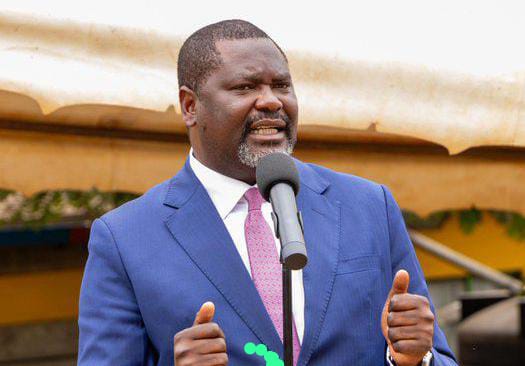
Govt Assures Civil Servants of Continuous Healthcare Amid Payment Dispute » Capital News
NAIROBI, Kenya Aug 9 – The government has moved to assure civil servants that their healthcare benefits remain uninterrupted, dismissing reports of service disruption under the Social Health Authority (SHA) insurance program.
In a statement issued on August 9, Public Service, Human Capital Development and Special Programmes Cabinet Secretary Geoffrey Kiringa Ruku said civil servants and their dependents will continue to receive treatment in public hospitals, as well as in accredited private and faith-based facilities across the country, without making cash payments.
“Civil servants will continue to receive medical care in all public hospitals and accredited and contracted private and faith-based hospitals nationwide,” Ruku said.
“Access to quality and seamless healthcare services remains guaranteed as it has been over the years.”
He clarified that only facilities suspended over alleged medical malpractice or non-compliance with SHA contractual obligations are currently restricted from offering services a measure that applies to all Kenyans.
Ruku warned that ‘grossly inaccurate’ reports risk causing unnecessary alarm among the workforce.However, the assurance comes against the backdrop of growing unease in the private health sector over delayed government payments.
In a letter dated August 7 to SHA Chief Executive Officer Mercy Mwangangi, the Kenya Healthcare Federation (KHF) said private healthcare providers can no longer sustain the financial strain of treating public servants without reimbursement from the government’s insurance scheme.
KHF said the program has not substantially settled claims since its launch nine months ago, leaving facilities in financial distress.
The federation, which operates as the health sector board of the Kenya Private Sector Alliance, represents commercial healthcare facilities, professional associations and other non-state medical providers.
“All civil servants, except teachers and police officers, will be required to pay in cash to access services at private health facilities if the outstanding claims are not settled,” KHF chairperson Dr Kanyenje Gakombe wrote.
“Unless the outstanding claims are settled per the contractual terms, providers will have no choice but to request that public servants pay and then seek reimbursement from their employers and/or the SHA.”